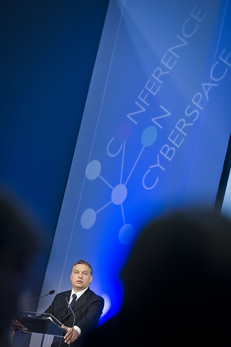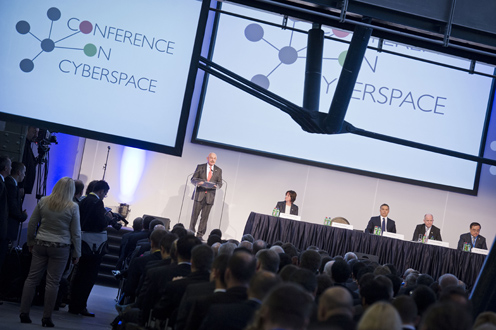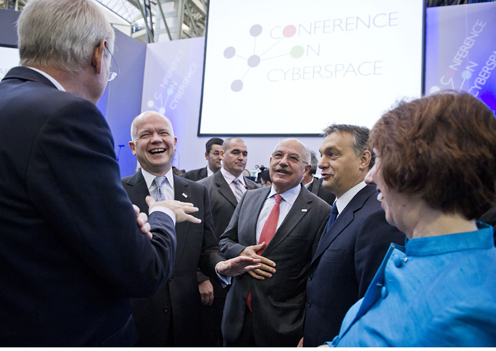The two-day international conference on Cyberspace in Budapest was opened by Hungarian Prime Minister Viktor Orbán, who told the conference that few users realise even today that they can fall victim to crime in the cyberspace. Global cybercrime generated more revenue last year than drug trafficking, he added.
The Hungarian Government urges countries around the world to step up efforts and cooperate to create a secure cyberspace while preparing the fight against cyber terrorism, the Prime Minister said. Today it is possible for someone to launch an attack at a relatively low cost from a simple computer disrupting the operation of an entire state, he added.

Prime Minister Orbán also applauded Hungary's IT sector, which, he said, has a promising future, noting that Hungarians had always been at the forefront of IT development. It is enough to mention such luminaries as mathematician John Von Neumann, 18th century polymath Farkas Kempelen and János Kemény, creator of Beginner's All-purpose Symbolic Instruction Code (BASIC), he said. While the sector is rather capital intensive, past experiences show that a country of the size of Hungary and low capital are also capable of producing serious achievements because the cyber world is primarily built on mind sets. Prime Minister Orbán said this is why capital-poor countries can contribute to the development of the IT and cyber sector with their innovative initiatives.
After the Hungarian Prime Minister, Foreign Minister János Martonyi took the floor saying that Cyberspace is a global phenomenon and therefore requires global cooperation to address problems connected to cyberspace. He added that governments needed to make use of the help and knowledge available of civil organisations, companies and economic sectors.

British Foreign Secretary William Hague congratulated the Hungarian Government for hosting this conference, stating that Hungary has provided important leadership to maintain the momentum from the 2011 London Conference on cyberspace. The Minister said in his speech that an international consensus is needed in shaping the future of cyberspace, told the international conference, stating that this was "urgent" and "unavoidable", since organised cybercrime represented an enormous danger. Well-organised computer attacks are being launched against governments and businesses. Cybercrime knows no borders and all countries are affected, he said. This means countries must join forces to find a common solution, he said.
Kim Sung-Han, Deputy Minister of Foreign Affairs of South Korea, said that cyberspace was changing at a rapid pace, and information and knowledge are increasingly important. The attacks that threaten cyber security must be avoided at an international level so the advantages of cyberspace can be utilised, he added. Cyberspace must remain free and open, albeit safe and reliable, he said, expressing hope that further discussions of the matter would take place at next year's cyberspace conference in Seoul.

High Representative of the European Union for Foreign Affairs, Vice President of the European Commission Lady Catherine Ashton also addressed the conference, stating that concerning cybercrime, the Budapest Convention, signed in 2001, is the most efficient instrument in this regard.
The conference was also greeted by the United States Secretary of State Hillary Clinton, who sent a video message, assuring the participants about her country’s full support on the security of cyberspace.
The two-day Conference in Budapest aim is to promote the network and content development of cyber space as well as the free and safe use of cyber space and the exploration of the opportunities for the development required for this. The conference is also aimed at facilitating the close cooperation between the public and the private sectors and the coordination between the international and the regional organizations.
(Prime Minister’s Office)

